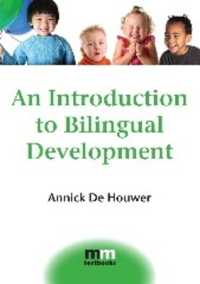- ホーム
- > 洋書
- > 英文書
- > Business / Economics
Full Description
Since becoming formally established with an international academic society in the late 1980s, ecological economics has advanced understanding of the interactions between social and biophysical reality. It initially combined questioning of the basis of mainstream economics with a concern for environmental degradation and limits to growth, but has now advanced well beyond critique into theoretical, analytical and policy alternatives. Social ecological economics and transformation to an alternative future now form core ideas in an interdisciplinary approach combining insights from a range of disciplines including heterodox economics, political ecology, sociology, political science, social psychology, applied philosophy, environmental ethics and a range of natural sciences.
This handbook, edited by a leading figure in the field, demonstrates the dynamism of ecological economics in a wide-ranging collection of state-of-the-art essays. Containing contributions from an array of international researchers who are pushing the boundaries of the field, the Routledge Handbook of Ecological Economics showcases the diversity of the field and points the way forward. A critical analytical perspective is combined with realism about how economic systems operate and their essential connection to the natural world and society. This provides a rich understanding of how biophysical reality relates to and integrates with social reality. Chapters provide succinct overviews of the literature covering a range of subject areas including: heterodox thought on the environment; society, power and politics, markets and consumption; value and ethics; science and society; methods for evaluation and policy analysis; policy challenges; and the future post-growth society. The rich contents dispel the myth of there being no alternatives to current economic thought and the political economy it supports.
The Routledge Handbook of Ecological Economics provides a guide to the literature on ecological economics in an informative and easily accessible form. It is essential reading for those interested in exploring and understanding the interactions between the social, ecological and economic and is an important resource for those interested in fields such as: human ecology, political ecology, environmental politics, human geography, environmental management, environmental evaluation, future and transition studies, environmental policy, development studies and heterodox economics.
Contents
List of figures
List of tables
Preface
Part I Foundations
1. Social ecological economics
Clive L. Spash
2. A critical and realist approach to ecological economics
Armin Puller and Tone Smith
Part II Heterodox thought on the environment
3. Critical institutional economics
Arild Vatn
4. Political ecology and unequal exchange
Alf Hornborg
5. Ecofeminism
Ariel Salleh
6. Ecological Marxism and ecological economics: from misunderstanding to eeaningful dialogue
Ali Douai
7. Post Keynesian economics and sustainable development
Eric Berr
8. Evolutionary economics
Karolina Safarzynska
Part III Biophysical reality and its implications
9. Thermodynamics: relevance, implications, misuse and ways forward
Kozo Torasan Mayumi
10. Geophysical limits, raw material use and their policy implications
Armin Dieter
11. Social metabolism
Fridolin Krausmann
12. The biophysical realities of ecosystems
Vincent Devictor
13. Coevolutionary social ecological economics
Richard B. Norgaard
Part IV Society, power and politics
14. Theories of power
Lorenz Stör
15. The Imperial Mode of Living
Ulrich Brand and Markus Wissen
16. A guide to environmental justice movements and the language of ecological distribution conflicts
Joan Martinez-Alier
17. Social movements and resistance
Viviana Asara
Part V Markets, production and consumption
18. Unregulated markets and the transformation of society
Asad Zaman
19. Theory of the firm
Peter E. Earl
20. Theories of (un)sustainable consumption
Clive L. Spash and Karin Dobernig
21. Work and leisure: money, identity and playfulness
Wolfgang J. Fellner
Part VI Value and ethics
22. Pluralism and incommensurability
John O'Neill
23. Intrinsic values and economic valuation
Katie McShane
24. Needs as a central element of sustainable development
Felix Rauschmayer and Ines Omann
25. Future generations
Richard B. Howarth
Part VII Science and society: uncertainty and precaution
26. Precautionary appraisal as a response to risk, uncertainty, ambiguity and ignorance
Andy Stirling
27. Addressing strong uncertainty: safe minimum standards
Irmi Seidl
28. Post-normal science
Roger Strand
Part VIII Methods
29. The NUSAP approach to uncertainty appraisal and communication
Jeroen P. van der Sluijs
30. Multi-criteria evaluation in environmental policy analysis
Salvatore Greco and Giuseppe Munda
31. Multicriteria mapping
Rebecca White
32. Q methodology
Ben Davies
33. Participation in the context of ecological economics
Kirsty L. Blackstock
34. Deliberative monetary valuation
Jasper Kenter
35. Participatory modelling in ecological economics: lessons from practice
Nuno Videira, Paula Antunes and Rui Santos
36. Input-output analysis
Jon D. Erickson and Melinda Kane
37. Sustainability indicators
Philippe Roman and Géraldine Thiry
Part IX Policy challenges
38. Commons
Bengi Akbulut
39. Uneven development and resource extractivism in Africa
Patrick Bond
40. Mining conflicts
Begüm Özkaynak and Beatriz Rodriguez-Labajos
41. Peak-oil and ecological economics
Christian Kerschner and Iñigo Capellán-Pérez
42. Human induced climate change from a political economy perspective
Max Koch
43. Ecosystem services
Erik Gómez-Baggethun
Part X Future post-growth society
44. Degrowth and democracy
Daniel Hausknost
45. The steady state economy
Brian Czech
46. Post-growth economics
Niko Paech
47. The bioregional economy: celebrating the local in production and consumption
Molly Scott Cato
48. The coming sustainable city
Laura Frye-Levine and Richard S. Levine
49. Eco-social enterprises
Nadia Johanisova and Eva Fraňková
50. Democracy, participation and social planning
Fikret Adaman and Pat Devine
Index






